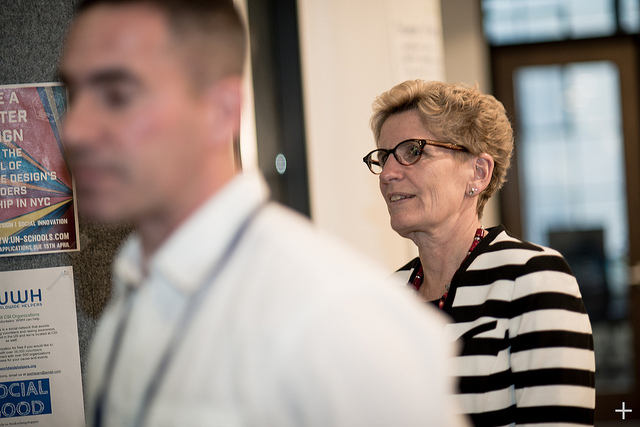*Photo by Jason Hargrove
Kathleen Wynne and Minister of Housing Peter Milczyn have introduced a new standardized lease in Ontario and guide book, set to begin use by the province’s private landlords and property management companies by the end of April. The government says it will better protect tenants from illegal terms and conditions on leases by simplifying language and making the overall process easier to understand. The associated guidebook will be printed in 21 different languages. The province is making a concerted effort to reduce the number of issues associated with residential tenancies while protecting the interests of tenants and landlords alike. To many who have long complained that the formal process of resolving issues between landlords and tenants has been long winded and complex (me included), this is a step in the right direction. With that said, and as per the Toronto Star, the real reason the province has rolled this out is to protect Ontario’s tenants from what this government considers to be frequent unethical attempts by landlords to get tenants to agree to illegal terms without their knowledge. So…you know. It’s political. This follows new rent control legislation that Wynne’s Liberals introduced last year.
The standard lease is essentially a plain English or French document that would be common to all tenants and landlords across the province, making it very clear and easy for a tenant to understand what it is they are agreeing to.” – Minister of Housing Peter Milczyn
Tenants rights advocates are all over this. Geordie Dent, Executive Director of the Federation of Metro Tenants Associations, characterizes the vast majority, if not every single lease in Ontario, as including something illegal in it. Clauses that don’t allow pets, require post-dated cheques, or stipulate the landlord can give a tenant notice that they have to leave at any time are all void.
“Almost every lease in Ontario, you could find something illegal,” -Geordie Dent/FMTA.
The new lease will apply to residential tenant properties, but not care homes, mobile home parks, land lease communities and most social housing. There might be some exclusions under co-operative housing as well.
